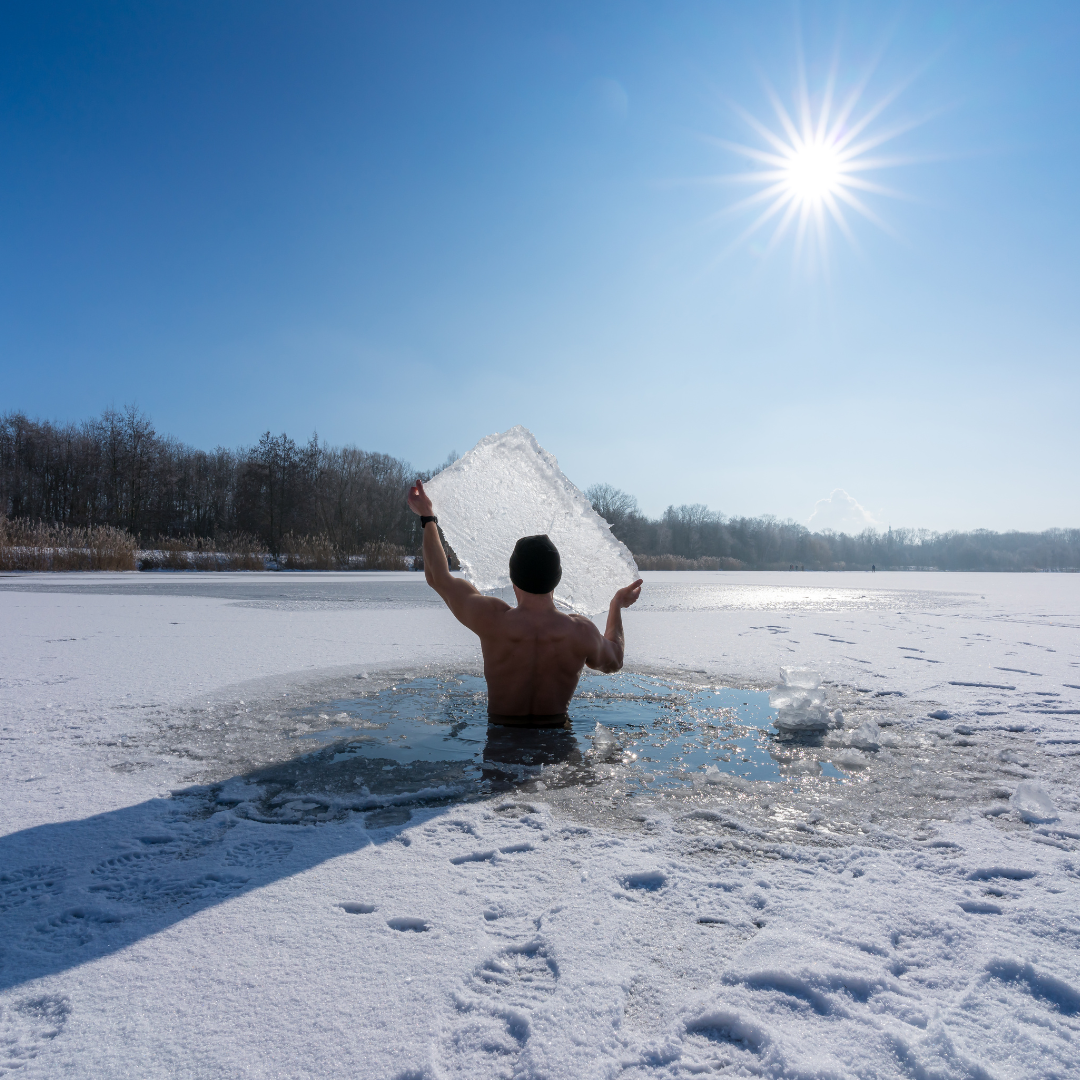Water, an essential element of life, has long captivated the attention of those seeking physical and mental well-being. In recent years, a wave of enthusiasm has surrounded cold water practices, promising benefits ranging from boosting the immune system to managing stress. In this article, we delve into the world of these methods, highlighting iconic figures such as Wim Hof and Sebastian Kneipp , while exploring the benefits and possible harms of exposure to cold water. Prepare to discover how this ancestral ritual has evolved to become a contemporary well-being trend, arousing both fascination and questions about its real impacts on our health.
The Wim Hof Method: Breathe and Resist
At the heart of the cold water craze is the revolutionary method of Wim Hof, also known as the " Ice Man ." Its philosophy is based on two pillars: controlled breathing and exposure to extreme cold. The first stage of this method consists of a specific breathing technique, aimed at saturating the body with oxygen and releasing endorphins. These deep, rapid breaths, followed by apnea, are believed to bring a range of benefits, from reducing stress to improving concentration.
The second part of the Wim Hof method is exposure to cold. The Iceman recommends ice baths (can be done with the Icepiration bath) and cold showers, arguing that adaptation to the cold strengthens the immune system and provides a feeling of vitality. Followers of this method often report increased resistance to cold and an improvement in their general well-being.
However, behind these intriguing claims lie lingering questions. What are the biological mechanisms really at play? In the next section, we'll dive deeper into the Wim Hof method and take a close look at the claimed benefits, while remaining mindful of the limitations and precautions to take.
The Kneipp Cure: Tradition and Hydrotherapy
Another time-honored approach to cold water wellness is the famous Kneipp cure, named after Sebastian Kneipp, a 19th-century German priest. At a time when modern medicine was still evolving, Kneipp developed a holistic method based on hydrotherapy, highlighting the healing power of water.
The Kneipp cure is based on five pillars , one of the most notable of which is the use of water, both hot and cold, in various forms. Cold water baths are a central element of this approach, aimed at stimulating blood circulation, strengthening the immune system and relieving everyday ailments. These baths often alternate with applications of hot water, creating a thermal contrast considered beneficial for the body.

Hydrotherapy according to Kneipp is not just about baths; it also includes compresses, showers, and even water walks. This variety of approaches seeks to harness the benefits of water in different forms, each targeting specific aspects of physical and mental health.
Cold Showers: Accessible to All
While Wim Hof's methods and the Kneipp cure may seem demanding to some, cold showers offer a more accessible approach to integrating cold water into the daily routine. This simple practice, within everyone's reach, nevertheless has considerable benefits for physical and mental health.
The idea behind cold showers is to confront the body with a lower temperature, thereby stimulating blood circulation and promoting faster muscle recovery. In addition to these physical benefits, cold showers are often associated with a feeling of vitality, increased energy, and improved mood .
Incorporating cold showers into your morning routine can be as simple as starting with a short exposure to cold water at the end of a regular hot shower. Gradual adaptation allows the body to get used to this revitalizing experience.
The Limits and Risks of Exposure to Cold Water
Although exposure to cold water can provide benefits, it is crucial to recognize the limitations and risks associated with this practice. Some people, due to their health or predispositions, may experience adverse reactions.
The main risks include increased blood pressure, excessive stress on the cardiovascular system, and complications for those who suffer from circulatory problems. It is imperative to consult a healthcare professional before adopting cold water exposure practices , especially for individuals with pre-existing medical conditions.
Furthermore, it is crucial to respect individual limits. Cold exposure sessions should not be excessive, and gradual adaptation is recommended to allow the body to gradually get used to it.
Scientific Studies
Scientific research has also examined the impacts of cold water on the body. A study published in the journal "PLOS ONE" in 2014 explored the effects of cold water immersion on muscle recovery after exercise, showing a significant reduction in muscle soreness and improved performance.
Additionally, the work of Dr. Rhonda Patrick , biochemist and nutrition expert, has shed light on the molecular mechanisms behind the benefits of cold exposure. She highlighted the activation of certain proteins and hormones, including anti-inflammatory cytokines, playing a crucial role in the body's positive responses to cold water.
However, despite these advances, it is important to note that research on this topic is constantly evolving. Some claims require more validation and research to fully confirm their validity.
Although testimonials and scientific studies provide interesting insights, it is essential to find a balance between individual experiences and evidence. The subjectivity of testimonials must coexist with the rigor of research to obtain a holistic understanding of the benefits and possible harms of exposure to cold water.
Our dive into the captivating world of cold water revealed a diversity of methods, each offering promises of physical and mental well-being. From the deep breaths of Wim Hof to the revitalizing baths of the Kneipp cure, including cold showers accessible to all, cold water has undeniably captured the attention of holistic health enthusiasts.
However, this exploration is not without nuances. The fascinating testimonies of individuals are echoed in scientific studies, but it is imperative to navigate with discernment. The potential risks of exposure to cold water should not be ignored, and consultation with a healthcare professional is recommended before adopting these practices.
Whether you are drawn to the discipline of Wim Hof, the wisdom of the Kneipp cure, or simply the invigorating glow of a daily cold shower, remember that the path to well-being is as individual as the imprint of each snowflake. Explore, experiment, but above all, listen to your body's signals to find the optimal balance between invigorating challenges and self-respect.
Find your Icepiration bath, delivery is free anywhere in the world!


Dive into the Frosty Trend: Ice Baths, Secrets of Well-Being and Performance!
Cold Baths and MMA: A Dive into the Octagon